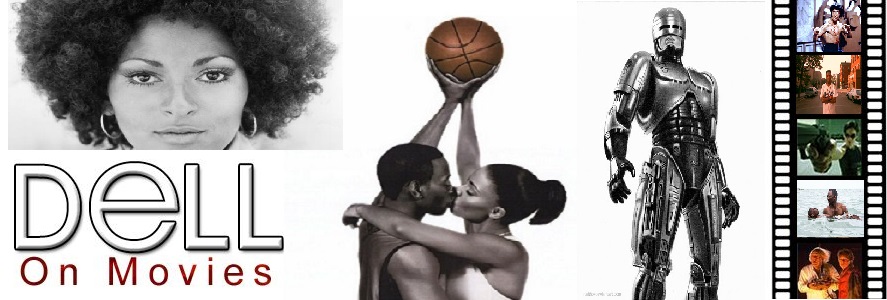2011. Rated R, 113 minutes.
Cast:
François Cluzet
Omar Sy
Audrey Fleurot
Clotilde Mollet
Anne Le Ny
Alba Gaïa Kraghede Bellugi
Cyril Mendy
Christian Ameri
Marie-Laure Descoureaux
Absa Dialou Toure
Salimata Kamate
We follow the adventures of Philippe (Cluzet) and Driss
(Sy). Philippe is a wealthy quadriplegic with a rebellious teenage daughter and
an attentive and devoted staff. Driss, has applied for the job of being his
live-in healthcare assistant despite not having any experience in the field
whatsoever. Fresh out of jail, he just wants to get proof he’s actually
searching for a job so he can receive unemployment benefits. When the two men
meet they have a conversation that intrigues Philippe who decides to hire Driss
despite his obvious shortcomings and a plethora of more qualified applicants.
They become bestest buds through some trials and tribulations, mostly due to
differences in social class. Based on a true story.
For the most part, The Intouchables is
a charming movie. We enjoy watching this relationship develop between two guys
from opposite ends of the universe. Their influence on one another is
interesting and there is humor all along the way. There is also no denying that
Sy has serious presence and dominates the screen as Driss. His smile lights it
up and it doesn't feel false when his character switches into angry mode. He
never seems to have an unsure moment. It’s truly an infectious performance. As Philippe, Cluzet’s work is no less commendable. He emotes
perfectly with just his face and endows the character with a perfect
vulnerability. Quite the opposite of Driss, Philippe is a man filled with
insecurities and one who has not had a friend in quite some time.
While the bromance aspect of our story works wonderfully,
the movie struggles with Elisa (Bellugi), Philippe’s daughter. There is much
fuss made about her, but the little bit of screen-time she gets doesn't justify
it. For example, there is a scene where Driss goes on a rant to Philippe about
how she must be disciplined. Of course, this happens after he has a bit of
run-in with her. He makes it seem, and others agree, as if she has chronic
behavior problems. Nothing to this point establishes this so it doesn't hold as
much weight as seems to be intended. She’s barely seen, before or after this
event and feels very much on the fringes of her father’s life. Members of the
staff fare much better as Driss makes numerous sexual advances on Magalie
(Fleurot), to no avail, and develops a kinship with Yvonne (Le Ny).
Similarly to Elisa, Driss’ own family exists only on the
very edges of the plot. They’re only a device to show growth in him, but only
does so in regards to his allegiance to Philippe. The one situation where he
helps them out is something he probably would've done regardless of his own
circumstances. This is merely a symptom of the the bigger problem. If you've
been following me, you may know that I’m sensitive (overly?) to the use of the
Magical Negro. If you have no idea what I’m talking about, I’ll explain. A
Magical Negro is a black character with special powers who is only present in a
story to use these abilities to benefit the white protagonist. Often, but not
always, this involves sacrificing oneself for the well-being of his white
friend. If you’re still not sure, think about the main (only?) black characters
in The Legend of Bagger Vance, The Green Mile, or any one
of a number of movies starring Morgan Freeman - The Shawshank
Redemption, Driving Miss Daisy, The Bucket List, etc. Even in the
most well-meaning of pictures this reeks of tokenism and, worse, a longing for the
good old days of servitude. The Magical Negro is generally an American
phenomenon, but is certainly present in this French production. Driss fits the
definition to a tee. His special ability is getting Philippe to enjoy life. No
matter how much anyone else cares for Philippe, they simply cannot get him to be
anything other than the rich invalid they cater to.
That this is based on a true story makes it easier to
swallow. That is, until the end when we see the actual people who inspired the
movie. The caregiver does not appear to be black. I’m not against a person of
one race playing a person traditionally thought to be of another so long as
we’re talking works of pure fiction and race is not intrinsic to the
character’s story. To use an extreme example to illustrate my point, Jamie Foxx
will play a traditionally white villain in The Amazing Spider-Man
2. I've no problem with this because the person he plays is only
white because he was drawn that way many moons ago. Nothing about him suggests
he has to be white. However, that same actor could not switch his role in
Django Unchained with that of the slave-owner portrayed by
Leonardo DiCaprio. In other words, a person who more resembles the real life
person may have provided us with the same cinematic experience without the
racial undertones.
Then again, maybe not. Sy’s performance is so wonderful, I’m
not sure another actor could replicate his magnetism and wring the same joy out
of us. This is my dilemma. Emphasis on the word ‘my’. It’s possible I’m reading
too much into it, looking at it from too American a viewpoint. Besides, there
have been a number of good movies guilty of the same offense, a few of them
great. Again, Shawshank immediately leaps to mind. That
said, punctuated by my lengthy and overdue exhalation, The
Intouchables is warm, funny, and despite its title, touching.



No comments:
Post a Comment